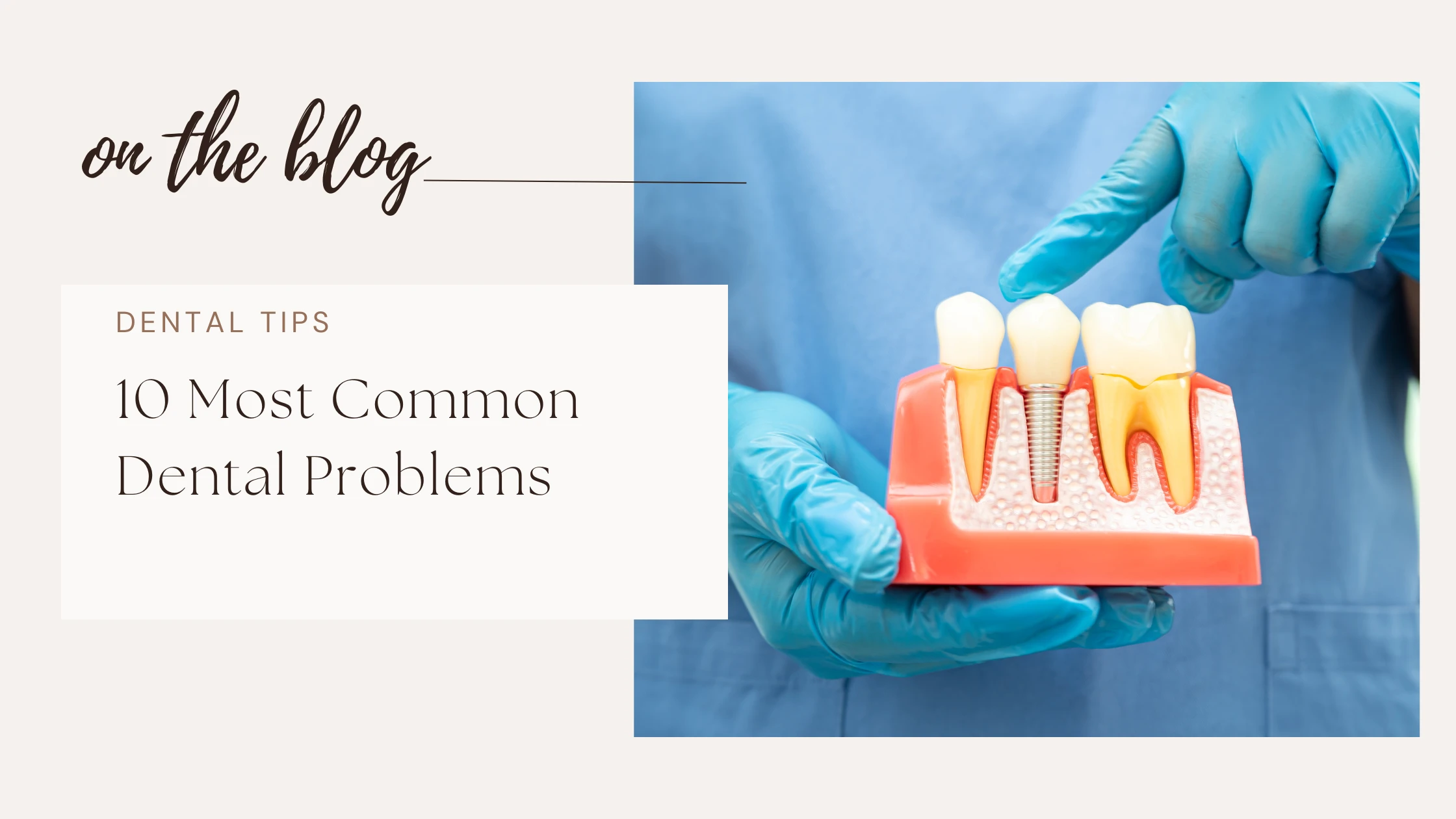
Almost everyone is aware of the importance of taking care of their health, but not all prioritize preventive care, especially for their teeth and mouth.
Some of us are too busy to make time to visit a dentist. For some, regular dental visits may be costly, or they have a fear of dental treatments. However, few realize the importance of regular visits to a dentist and understand how it can be game-changing for their oral and general health.
Regular dental checkups are important for your oral health. Early identification of cavities and gum diseases ensures timely treatment and intervention. Professional dental cleaning removes plaque and tartar, eliminating gum disease and bad breath, and also prevents cavities.
Dental disorders are the most prevalent non-communicable disease in India. However, they are commonly overlooked. Let us look at some commonly seen dental problems:
Bad breath, often known as halitosis, impacts our confidence and social lives. In today’s world, where communication is key in both work and personal environments, bad breath may cause embarrassment and distress. Bad breath can be caused by oral or gastrointestinal issues, with oral causes accounting for almost 90% of cases. Bad breath is considered a main indicator of poor oral hygiene or unhealthy gums.
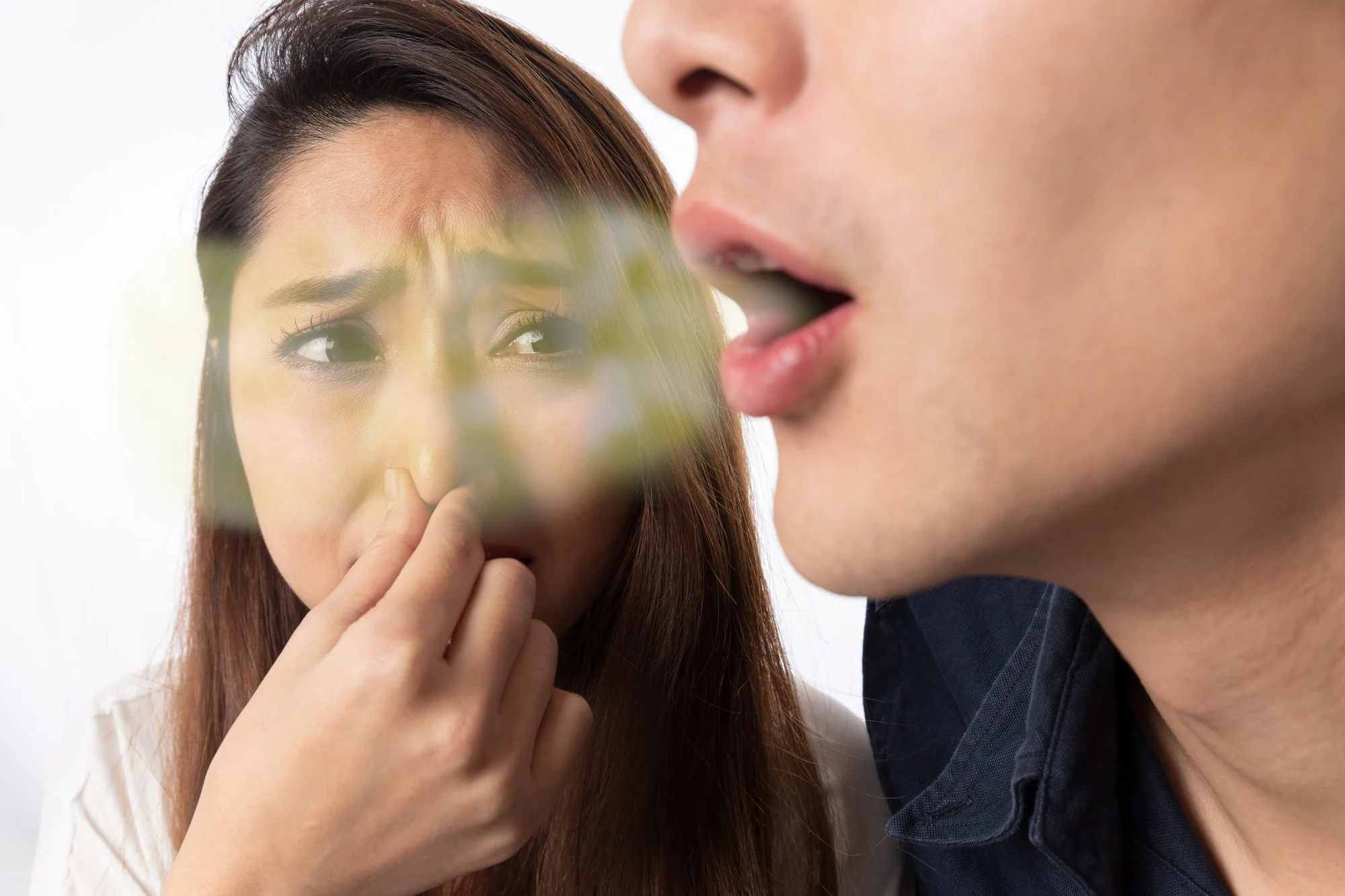
Some causes of bad breath include gum disease, dry mouth, oral cancer, bacteria present on the tongue, tobacco, and alcohol consumption.
Several conditions, like diabetes, kidney disorders, liver diseases, tonsillitis, lung infections, etc., may be associated with halitosis.
Mouthwashes cannot cure bad breath; they only mask the malodor. It is important to visit the dentist for necessary care and management when the cause is related to an oral disease.
Prevention: Twice-daily brushing, flossing, rinsing after meals, and tongue cleaning prevent bad breath. Regular dental checkups play an important role in keeping oral diseases at bay. Additionally, having your teeth cleaned once a year keeps you fresh and rejuvenated.

Similar to any other discomfort, a toothache is a signal that something is wrong. A toothache may be sharp, dull, transient, or long-lasting. It causes discomfort, swollen gums, and sensitivity, making our daily activities difficult.
The most common causes of tooth pain are gum infections, cavities, broken teeth, teeth grinding, and locked wisdom teeth.
Consulting with your dentist if you have a toothache is important to save the tooth. When ignored, a toothache can become very severe, leading to emergency dental visits and may even lead to the loss of a tooth.
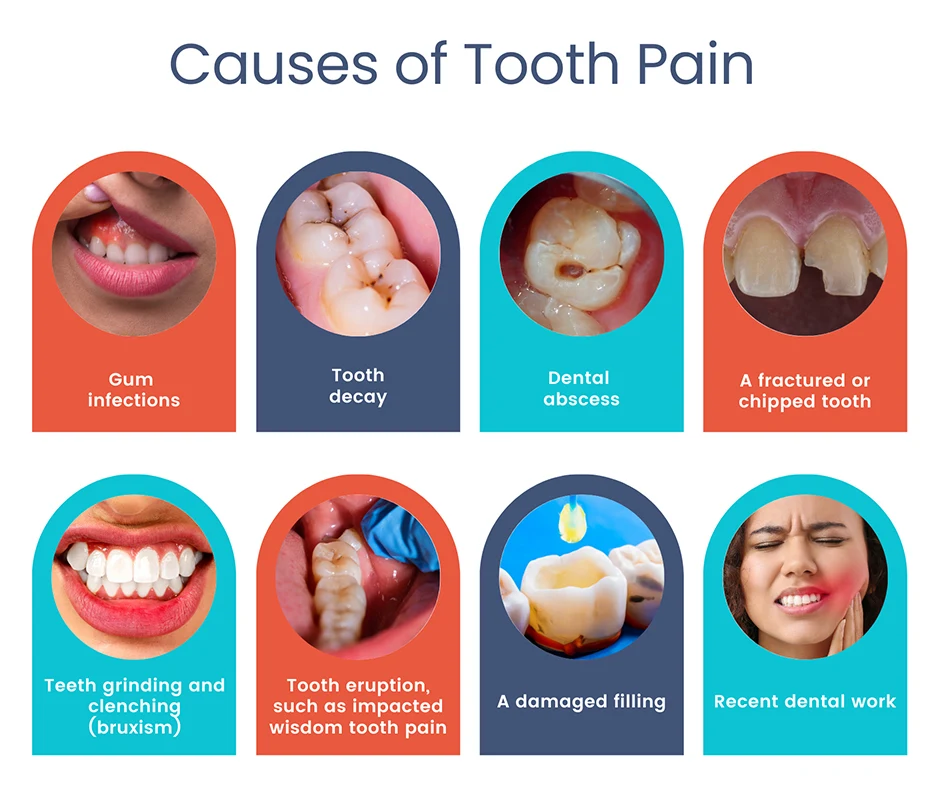
Bleeding gums indicate gingivitis, often known as gum disease. Gum disease is one of the most prevalent oral diseases, affecting the majority of people at some point in time in their lives. Bleeding gums are an early indicator of gum disease. Gum disease progresses into periodontal disease, in which the bone surrounding a tooth's root is damaged, leading to loss of the tooth.
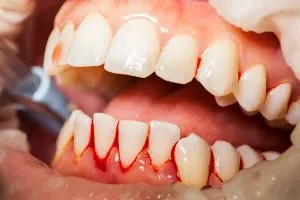
Causes: Accumulation of plaque, tartar, and calculus is the main causative factor. Smoking also has a large impact on bleeding gums.
Several conditions like diabetes, vitamin K and C deficiency, anemia, blood-thinning medications, stress, and hormonal changes during puberty, pregnancy, and menopause also cause bleeding gums.
Prevention: twice-daily brushing, using mouthwashes, avoiding smoking, nutrition-rich food, regular dental checkups, and regular teeth cleaning by the dentist.
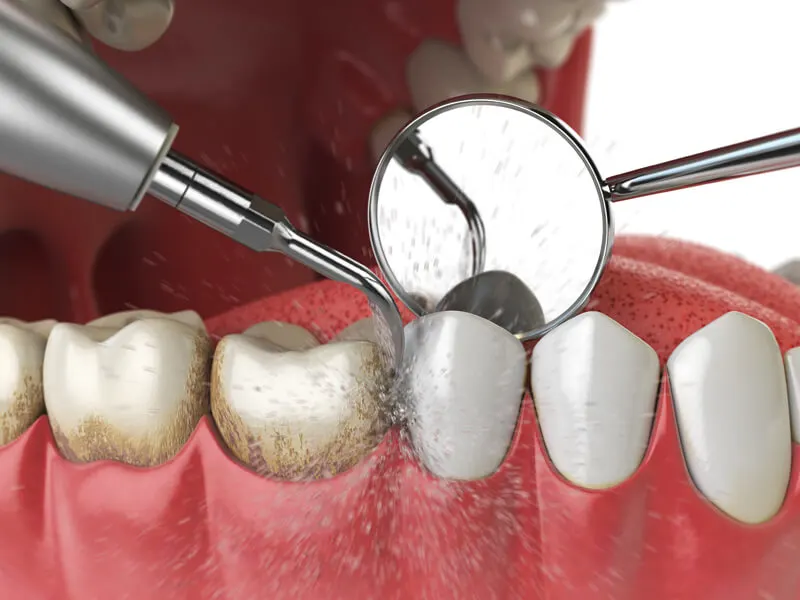
Tooth sensitivity occurs when the dentin, the layer beneath enamel, is exposed. It is a sharp, abrupt pain that penetrates deep into the tooth's nerve endings. Teeth sensitivity can be noticed on eating or drinking anything hot, cold, sweet, or sour, or merely by breathing in cold air.
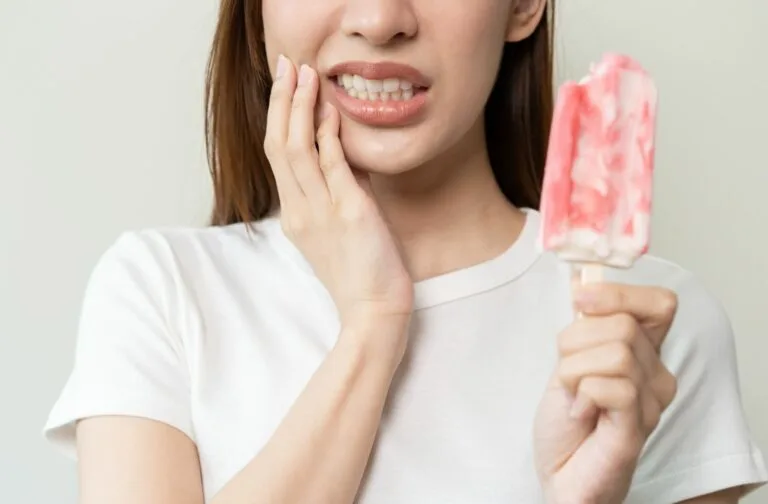
Tooth sensitivity is experienced with hard brushing, using hard toothbrushes, in gum diseases, cracked teeth, teeth grinding habits, decayed teeth, with age, and excessive consumption of acidic foods.
Important measures to prevent tooth sensitivity include using desensitizing toothpaste and a soft-bristle toothbrush, wearing a mouth guard if you have a teeth-grinding habit, and applying sealants and varnishes on exposed tooth surfaces.
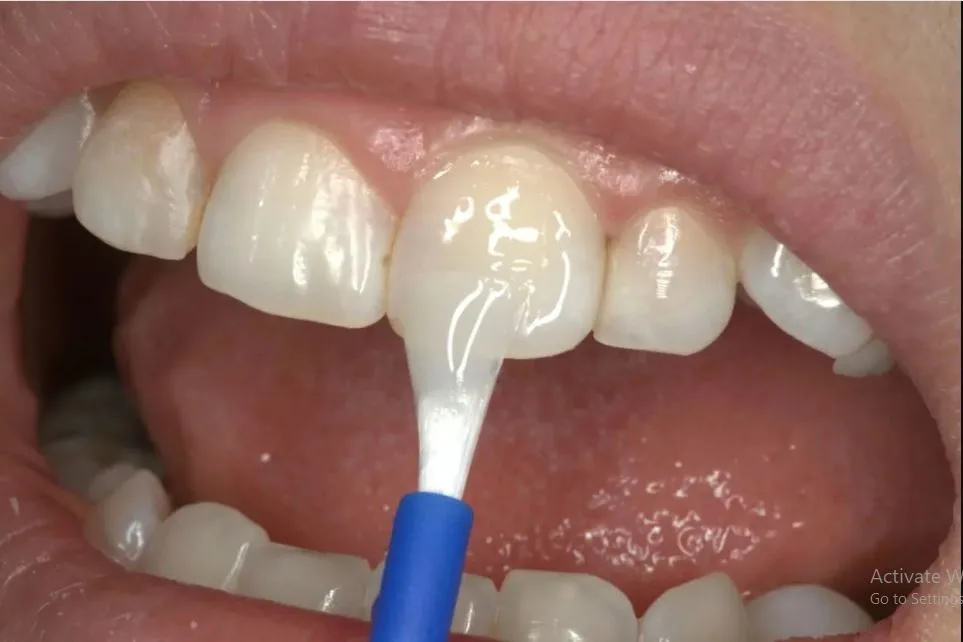
One of the most common dental problems is stained teeth, which can range from a little yellowing to brown or black colors. Stains are of two types, as described below.
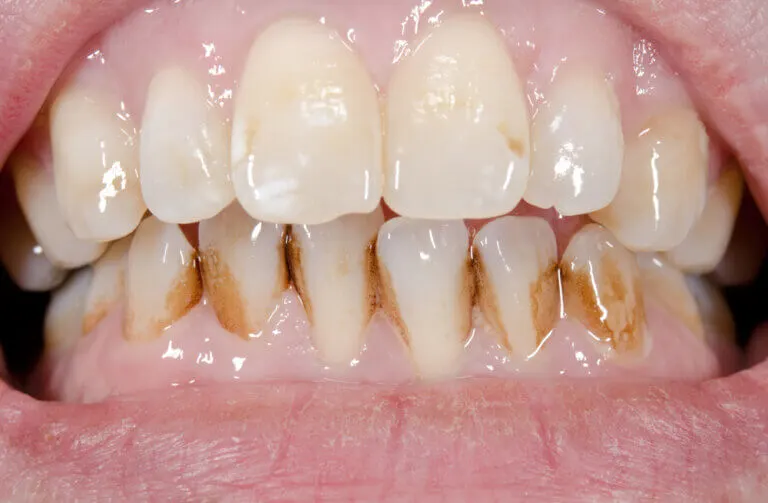
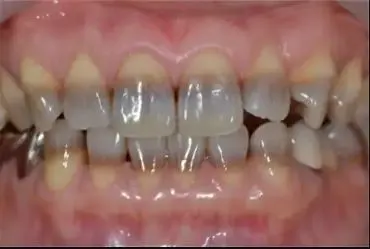
Preventive Care: Twice-daily brushing, limiting foods and beverages that stain teeth, avoiding any form of tobacco, rinsing the mouth after every meal, and regular dental checkups.
Various treatment options include teeth cleaning, teeth whitening, porcelain and composite veneers, and dental crowns.
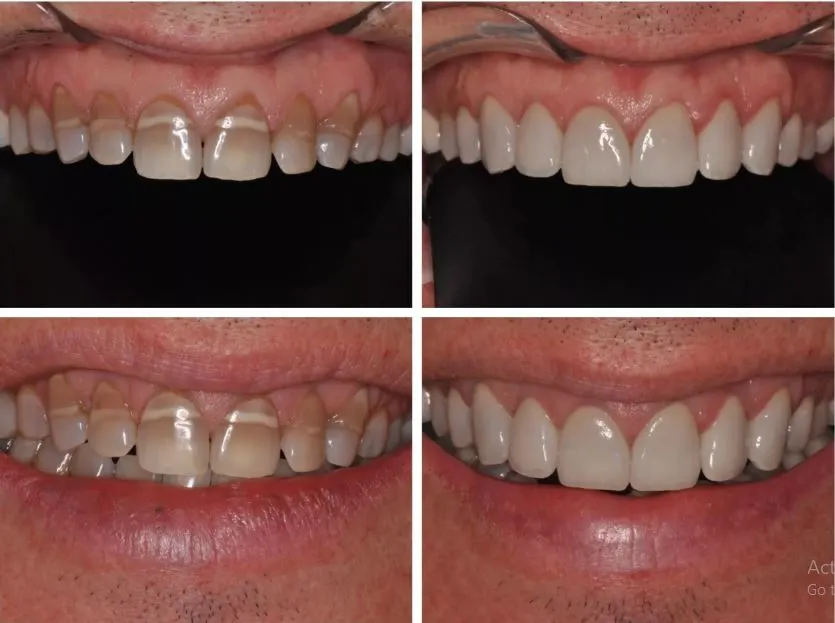
Dental cavities are the most common oral health issue that people suffer from. It is caused by plaque, which is a layer of bacteria that forms on the surface of the teeth. Bacteria turn carbohydrates in food into acids. This acid targets the softer dentin layer underneath the enamel, which can lead to cavities or holes in your teeth.
The common signs and symptoms include holes in the tooth; brown, black, or sometimes white stains on the teeth; toothache; and tooth sensitivity or pain during biting or while drinking anything cold or hot.
Consumption of excess sugary foods or beverages, frequent snacking, improper brushing, and dryness of the mouth are the common causes of cavities.
Prevention: Rinsing your mouth after every meal, using toothpaste containing the optimum level of fluoride, avoiding frequent snacking, and applying dental sealants help in the prevention of cavities.
Certain treatment modalities include dental fillings, root canal treatment, and tooth extractions.
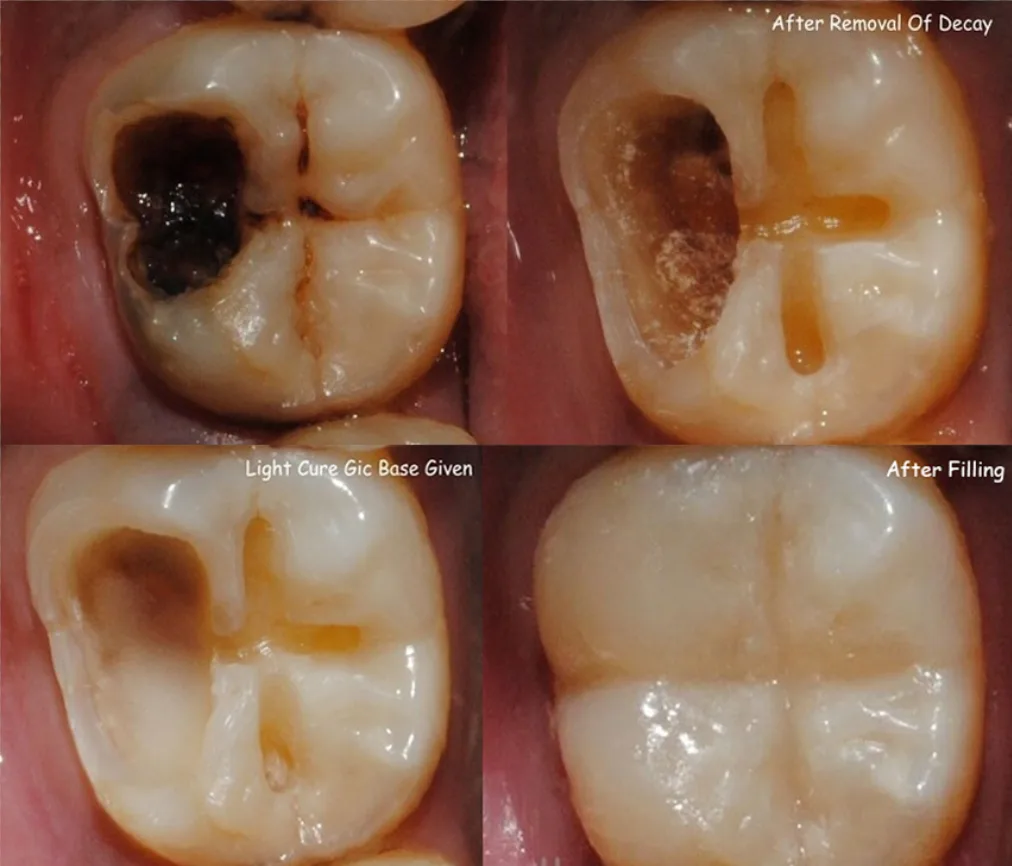
Crooked and misaligned teeth are very common among children and adults. A tooth may erupt in an irregular position, leading to the opposite and nearby teeth being out of alignment, or the jaw may be too small or too big to support all the teeth in proper alignment.
Common causes of crooked teeth include abnormal jaw size, habits like thumb sucking, mouth breathing, and tongue thrusting; prolonged usage of a pacifier or bottle feeding; and genetic abnormalities.
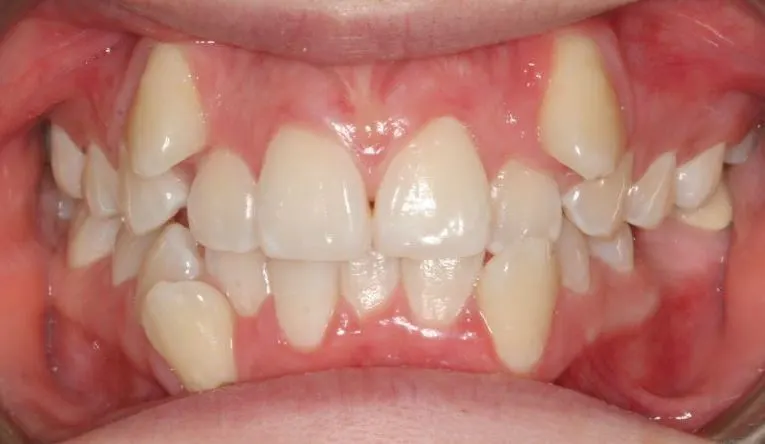
These crooked teeth lead to gum disease, speech difficulty, early wear of teeth, difficulty in chewing, self-esteem issues, and difficulty in maintaining oral hygiene.
Various treatment options include braces, aligners, and Brava+ (a specialized lingual system).
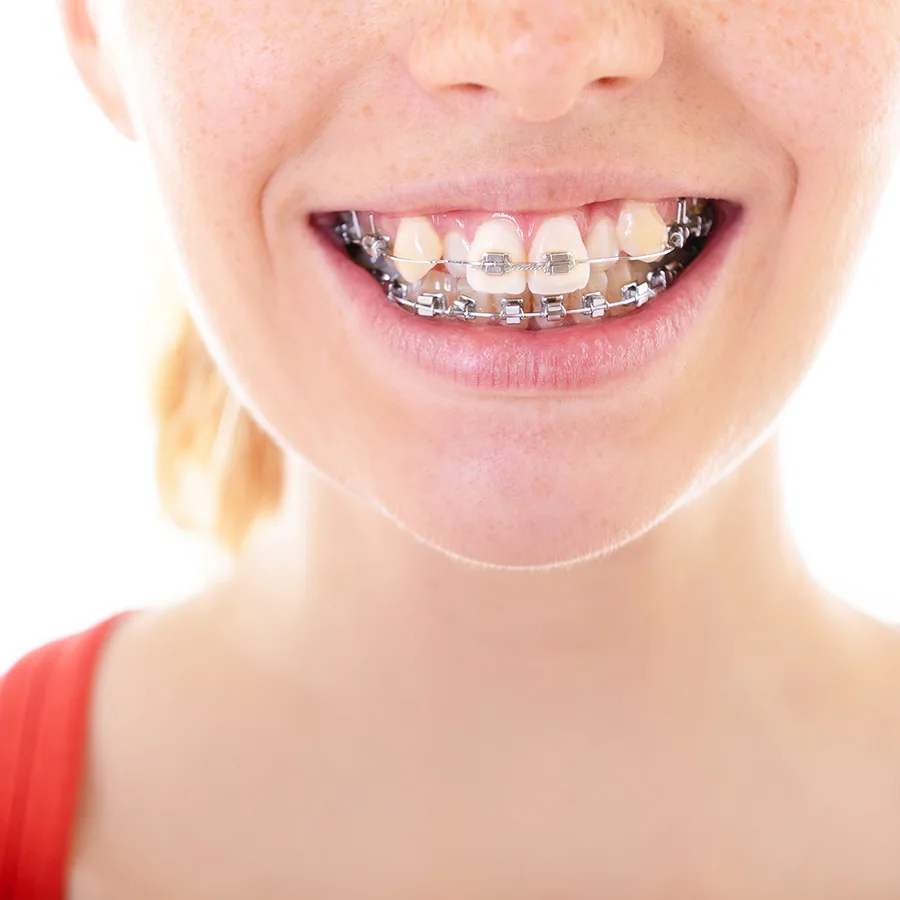
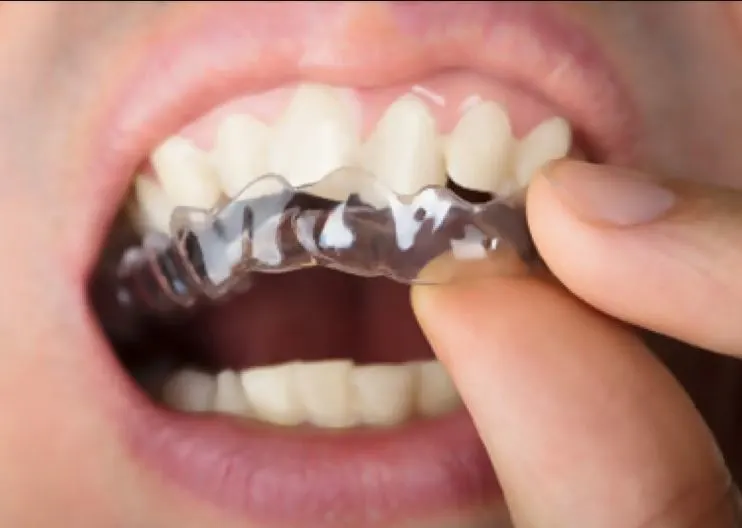
Most people experience loss of teeth at some point in their lives. A missing tooth leaves a gap and causes aesthetic as well as functional issues. There is difficulty in chewing and speaking associated with tooth loss. Also, as one tooth is lost, other teeth start moving, resulting in loss of the jawbone.
The most common causes of tooth loss are gum disease, tooth injury, tooth cavities, smoking, and diabetes.
This problem can be easily recognized by bad breath, bleeding gums, loose teeth, and swollen gums.
The most common challenges faced with missing teeth are difficulty in chewing, improper bite, speech difficulty, food accumulation, overeruption of the opposite tooth, tilting of the adjacent tooth, and lack of confidence.
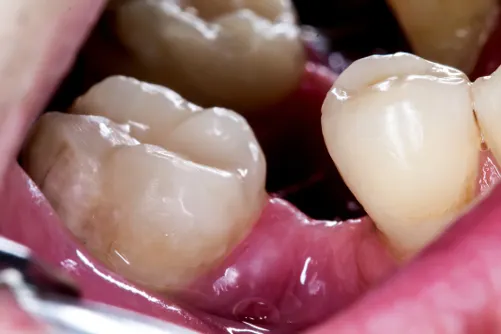
Some preventive measures, such as good oral hygiene maintenance, brushing and flossing, and regular dental checkups, help prevent early tooth loss.
Treatment options include dentures, crowns and bridges, and dental implants.
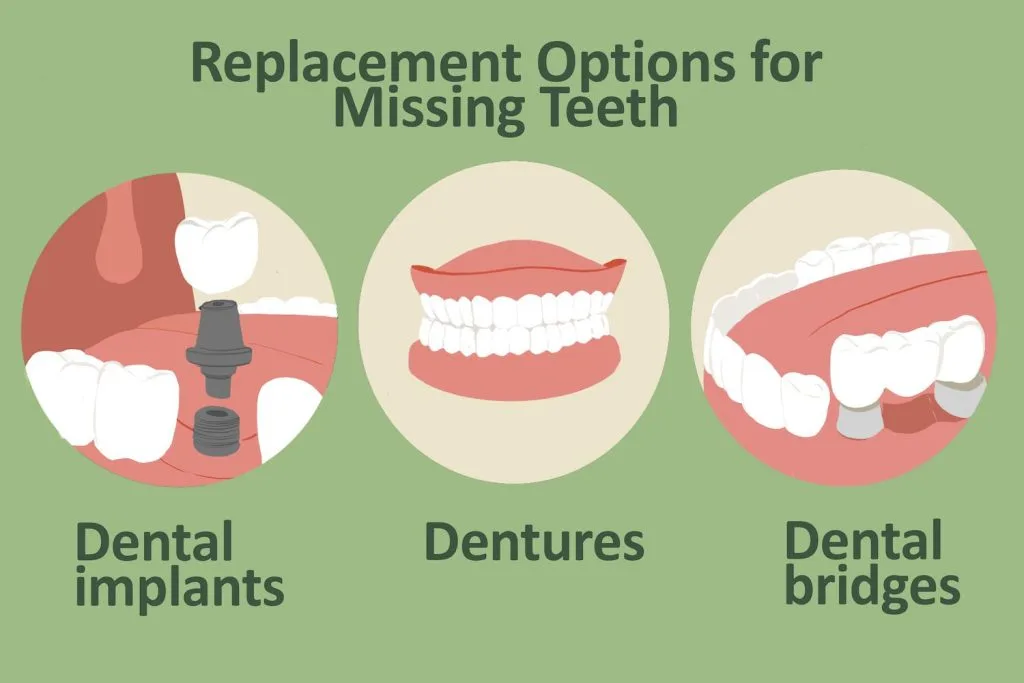
Tooth fracture is a rather common injury, particularly in the front teeth. It's possible that the crack is so little that it doesn't harm your tooth, but sometimes it can also cause the tooth to break into pieces. A severely cracked tooth could be a dental emergency.
The most common reasons for tooth fracture include teeth grinding, biting into hard foods, injury or falls, and old age.
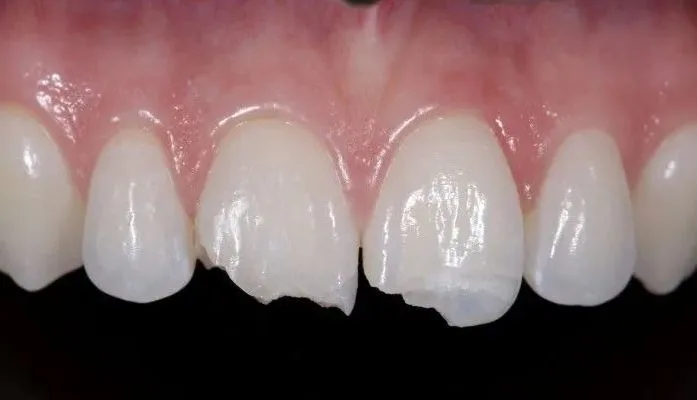
Symptoms may include pain while chewing, especially while releasing the bite; tooth sensitivity; swelling of gums; and a change in the color of the tooth.
Various treatment options are root canal treatment, aesthetic fillings, veneers or crowns, and tooth removal.
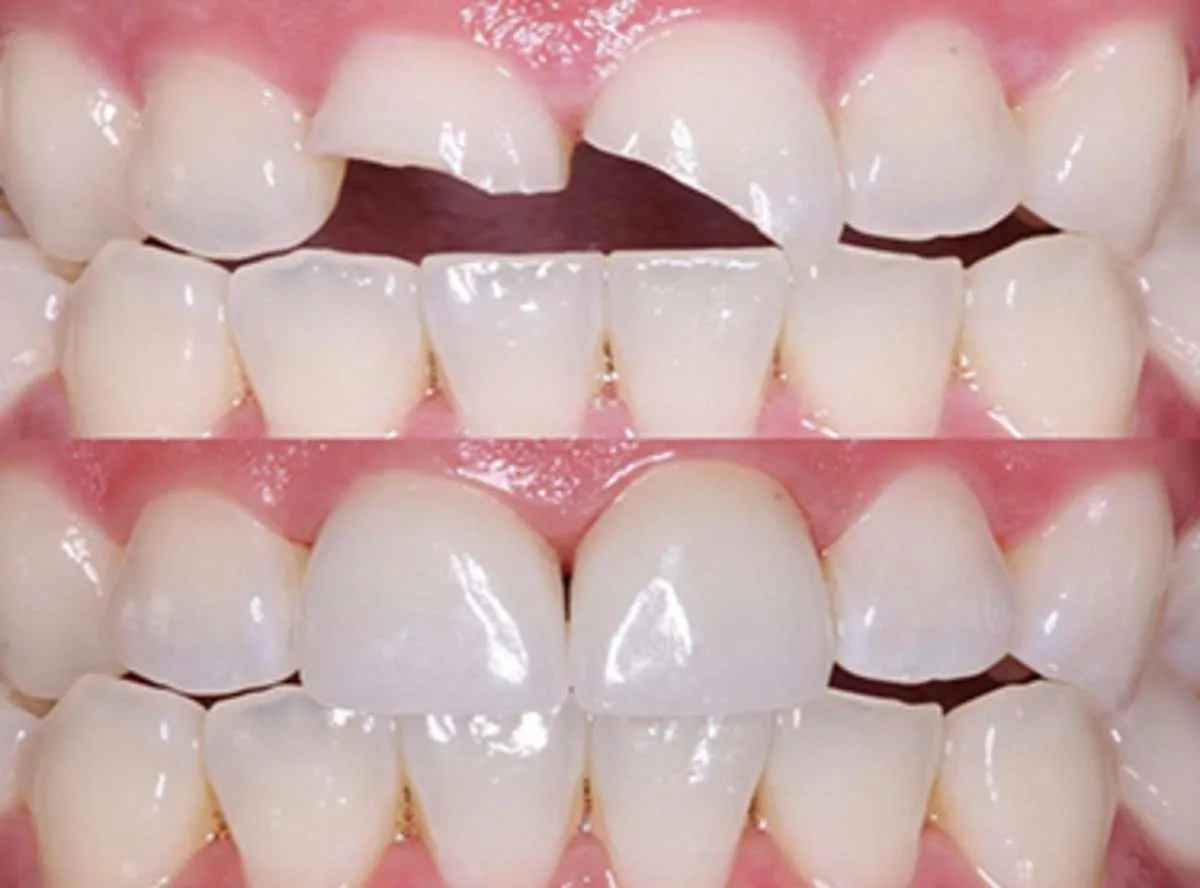
Teeth grinding, or bruxism, is typically a subconscious behavior called a parafunctional habit. It can be seen in any age group. Subconsciously, people tend to grind their teeth when they're excited, nervous, stressed, or even asleep. This leads to tooth sensitivity and tooth damage, which raises the possibility of cracks and fractures.
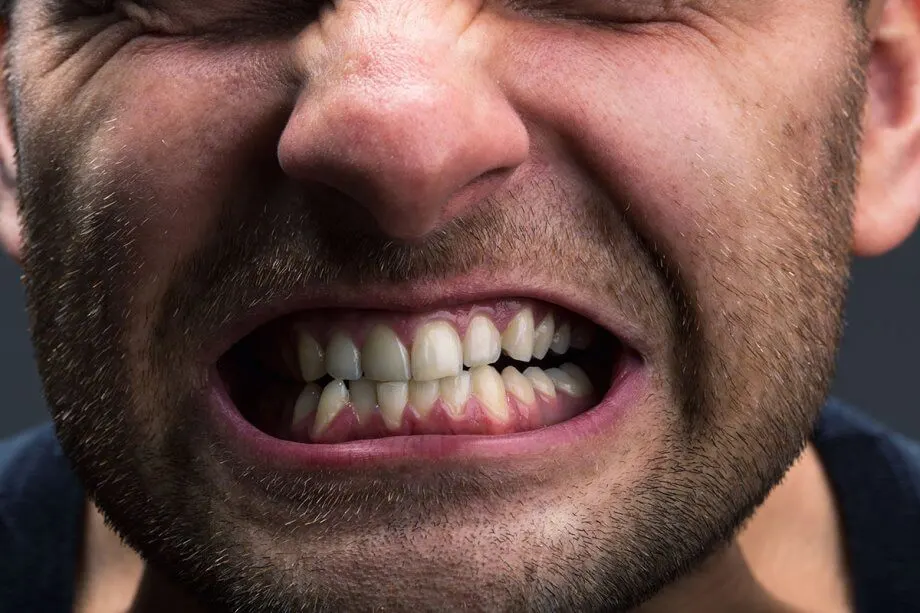
Teeth grinding is believed to be caused by stress, anxiety, depression, sleep-related disorders, and certain medications.
Signs and symptoms include early morning headaches, ear pain, inability to open or close the mouth, or pain in the facial musculature.
Basic treatment includes mouth guards, meditation, medications, and lifestyle changes.
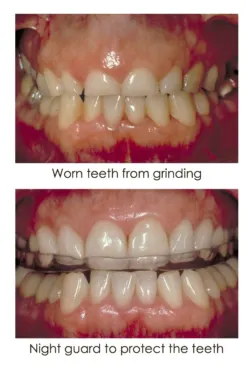
Common dental disorders like toothache, cavities, bleeding gums, bad breath, tooth sensitivity etc., cause discomfort and interruption in our daily chores. It is advisable to visit the dentist as soon as any of the associated symptoms arise. Earlier intervention not only prevents progression of the diseases towards loss of tooth but also reduces the cost of the treatment significantly.
At both branches of Dhriti Dental, Manikonda and Nallagandla, our expert dentists identify and treat dental diseases with personalised treatment protocols. Book your appointment with us now!